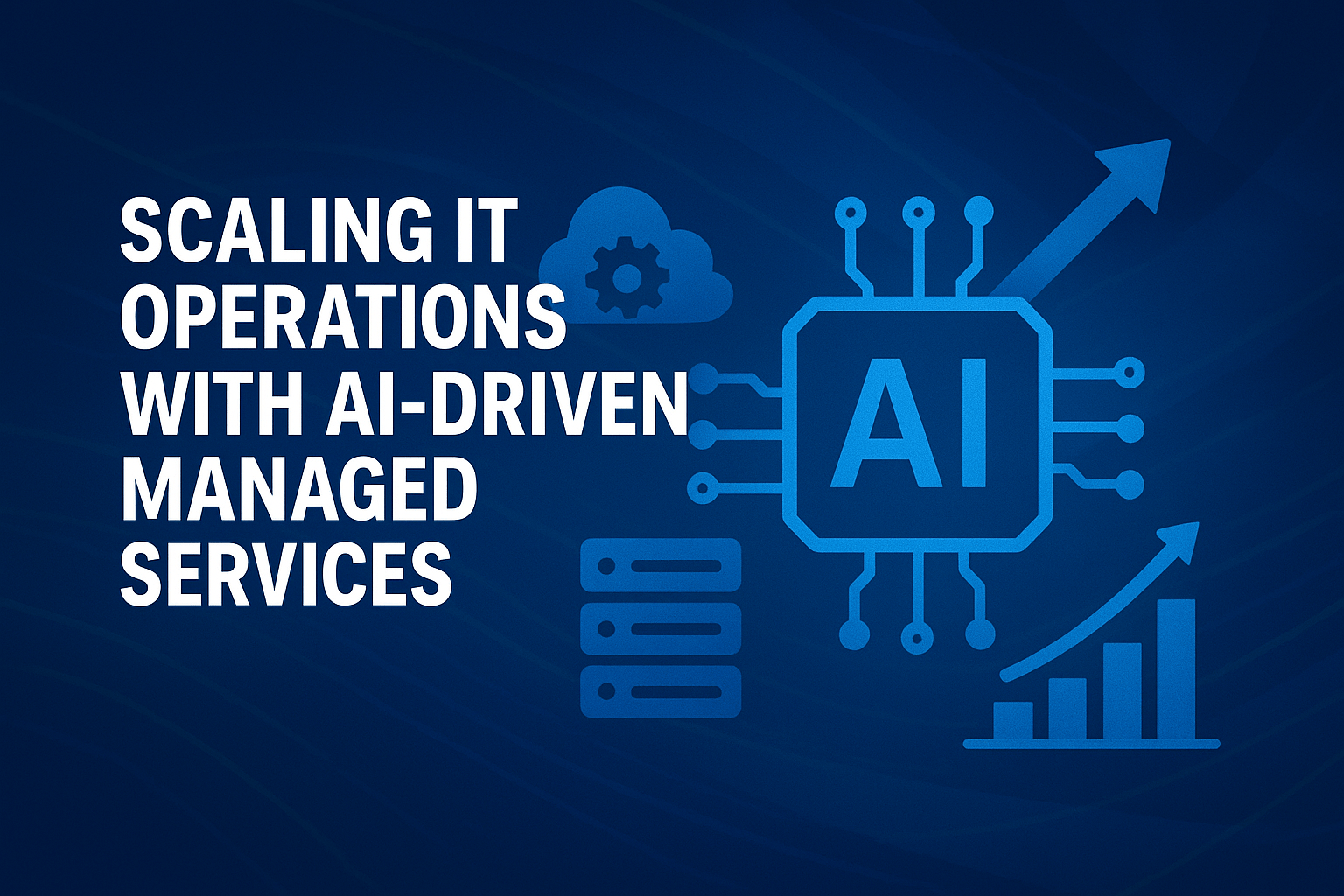Introduction
The modern IT landscape is becoming increasingly complex. Enterprises today manage hybrid infrastructures, distributed applications, and real-time data flows—all while ensuring uptime and security. Traditional IT operations models, heavily dependent on manual monitoring and reactive fixes, are no longer sufficient. This is where AI-driven managed services are emerging as a transformative approach.
By embedding artificial intelligence into IT operations (AIOps), organizations can achieve predictive monitoring, automated incident resolution, and optimized resource management—enabling scalability without proportional increases in cost or workforce.
According to Gartner, by 2026, 60% of large enterprises will use AIOps platforms to support major IT functions, up from just 30% in 2022 (Gartner). This signals a significant shift toward AI-driven models for IT efficiency and resilience.
The Shift from Traditional IT Operations to AI-Driven Models
Traditional IT operations rely on manual intervention, rule-based monitoring, and siloed service management tools. This approach is reactive, meaning issues are addressed only after they impact performance.
AI-driven managed services, on the other hand, leverage machine learning and advanced analytics to monitor vast datasets across infrastructure and applications in real time. By detecting anomalies, predicting failures, and recommending resolutions, AI enables proactive and self-healing IT operations.
A report by IBM shows that organizations using AI in IT operations reduce downtime by up to 60% while cutting incident response times by nearly 70% (IBM).
Key Benefits of AI-Driven Managed Services
1. Predictive Monitoring and Maintenance
AI systems analyze logs, events, and performance metrics to forecast potential failures before they occur. This reduces unplanned outages and supports business continuity.
2. Automated Incident Response
Instead of manual troubleshooting, AI-driven platforms can automatically identify, diagnose, and resolve common IT issues. This leads to faster resolution times and less operational disruption.
3. Enhanced Scalability
As businesses scale, manual IT support models often become unsustainable. AI-driven managed services provide elasticity by adapting to demand in real time without requiring a linear increase in headcount.
4. Cost Optimization
According to Deloitte, companies adopting AI in IT operations achieve 20–30% cost savings on infrastructure and operational expenses due to automation and resource optimization (Deloitte).
5. Stronger Security Posture
AI can detect suspicious activities faster than traditional monitoring tools, enabling real-time threat detection and automated remediation.
Industry Use Cases
- Banking & Financial Services – AI monitors high-volume transactions to detect anomalies, ensuring uptime and fraud prevention.
- Healthcare – Hospitals use AI-driven IT operations to guarantee the availability of critical patient management systems.
- Retail & E-commerce – AI supports seasonal scaling, ensuring websites handle peak loads without downtime.
- Telecom – AI-driven predictive monitoring reduces network outages and supports faster customer service resolutions.
Challenges and Considerations
While the benefits are clear, organizations must also consider:
- Data quality and integration: AI effectiveness depends on accurate, unified datasets.
- Change management: Shifting from manual to AI-driven models requires upskilling teams.
- Vendor reliability: Choosing a managed services provider with robust AI capabilities is critical.
Conclusion
AI-driven managed services are no longer just an efficiency upgrade; they are becoming a strategic necessity for organizations managing large-scale IT environments. With predictive monitoring, automated resolution, and scalable operations, AI is fundamentally changing how enterprises approach IT management.
As Gartner’s projections suggest, the adoption curve is accelerating—organizations that embrace AI-driven IT operations now will be better positioned to ensure resilience, scalability, and cost-effectiveness in the digital era.







